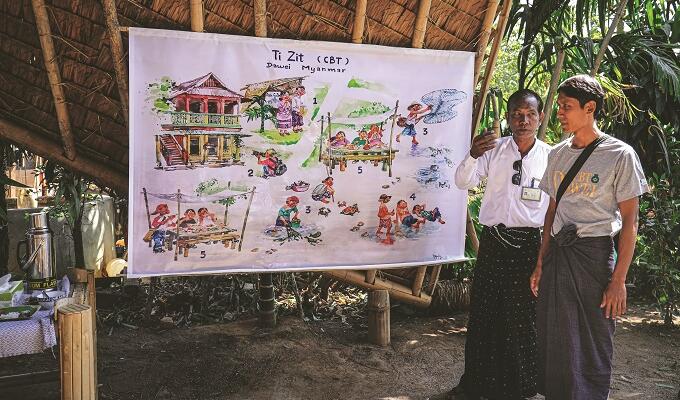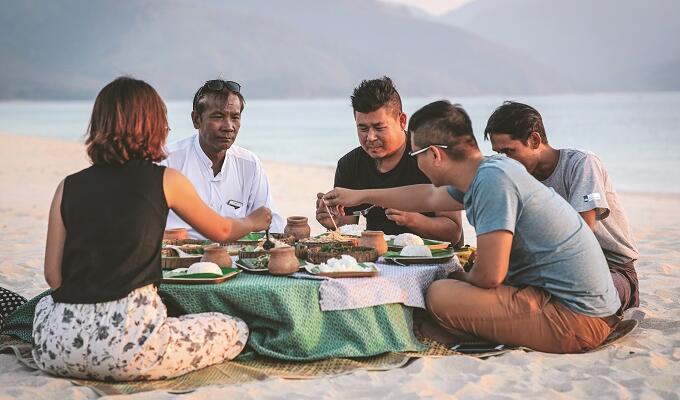



Bridging differences (en)
When you think of Myanmar, you might picture rich fauna, tropical forests, sparkling beaches, and a dramatic silhouette of temples and pagodas against a mountainous backdrop. It is undeniable that Myanmar, with its beautifully diverse landscape and rich cultural history, has a lot to offer. And tourism is set to pave the way for economic development in this often less-travelled Asian land in the years ahead.
Through inclusive and sustainable tourism development, a Netherlands-funded International Trade Centre project contributes to creating income and jobs, particularly for women and young people.
This community-based tourism project connects stakeholders along the whole tourism value chain, involving locals to create meaningful exchanges and ensure long-lasting benefits for all involved: from developing innovative and sustainable services and strengthening local tourism associations, to destination marketing and branding and encouraging business linkages at national or regional levels. To achieve sustainability that lasts, the International Trade Centre also works with national partners to ensure the project is in line with the country’s tourism agenda.
A successful model: From Kayah to Tanintharyi
Only recently did it become possible to visit Kayah state and its villages. After years of armed conflict, and with the new prospect of income through tourism, many Kayan refugees started returning. The International Trade Centre has now extended the ‘Kayah model’ to Dawei in the Tanintharyi region in southern Myanmar.
A natural place where forest rivers meet tropical beaches along the Indian ocean, Tanintharyi offers new community-based tours in the fishing and orchard communities of Tizit and Ka Lone Htar — and soon in the old colonial town of Dawei.
Project leaders have trained local community members in villages around Dawei to develop fun, creative, cultural tourism for themselves. These tours build local skills and empower local people to include, participate in and benefit from tourism.
It does not stop there: one of the biggest challenges in development projects remains transferring knowledge to stakeholders in the field. In response, the International Trade Centre formed groups of local trainers in both Tanintharyi and Kayah to create a learning centre. The centre now welcomes international travel journalists and study tours from other Myanmar regions interested in developing responsible tourism.



